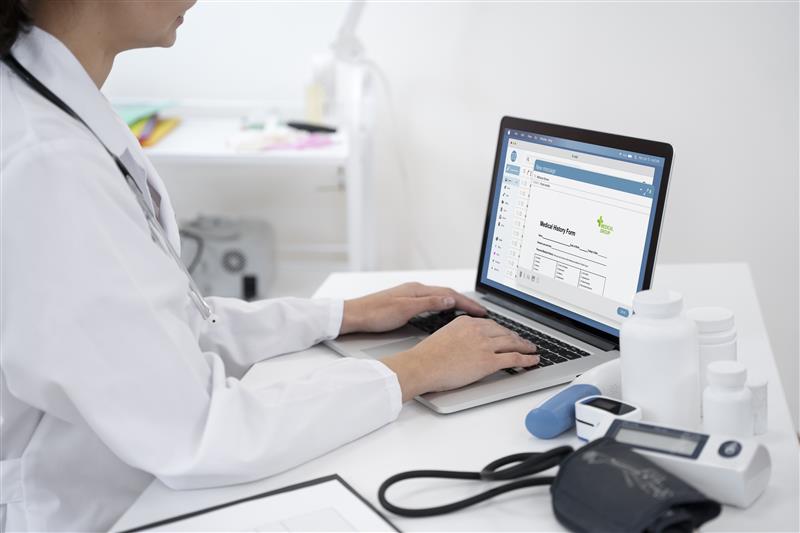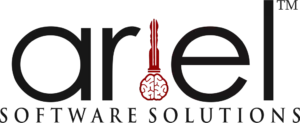Bridging the Healthcare Data Divide
Imagine visiting a new doctor and realizing your complete medical history is missing from their system. You spend the next 20 minutes recalling past diagnoses, medications, and allergies, something that should’ve taken seconds if your health records were seamlessly accessible. This scenario is far too common and highlights a long-standing challenge in the healthcare industry: data interoperability.
This is where FHIR in healthcare steps in. Short for Fast Healthcare Interoperability Resources, FHIR is a modern standard developed by HL7 that uses web-based APIs to bridge healthcare data gaps. It is at the heart of FHIR healthcare solutions, designed to revolutionize how health data is shared, accessed, and secured.
In this blog, we explore top real-world use cases for FHIR in healthcare and how Ariel Software Solutions empowers organizations to drive digital health transformation through FHIR-enabled systems.
What is FHIR and Why It Matters
FHIR in healthcare is more than a technical standard, it’s the engine powering next-generation health systems. Developed by Health Level Seven International (HL7), FHIR uses RESTful web services and supports modern formats like JSON and XML, making it scalable and developer-friendly.
Key Features of FHIR Healthcare:
- RESTful API design
- Standardized resources (e.g., Patient, Observation, Medication)
- Works with mobile apps, EHRs, and cloud platforms
- Real-time, secure data exchange
- Modular and extensible
Why does this matter? Because FHIR in healthcare is the catalyst for digital health transformation, breaking down data silos and fostering true interoperability between systems, ultimately improving care delivery and efficiency.
Top Real-World Use Cases of FHIR in Healthcare
Let’s look at how FHIR healthcare solutions are driving tangible benefits across the medical landscape:
1. EHR Interoperability Across Health Systems
Many providers use different Electronic Health Record (EHR) platforms, which leads to fragmented patient data. FHIR in healthcare solves this by acting as a universal translator between systems.
Example: A patient transfers from Hospital A (using Epic) to Hospital B (using Cerner). With FHIR, their full records lab results, prescriptions, and diagnoses are instantly available.
Ariel’s Role: Ariel develops middleware and FHIR-based APIs that connect disparate EHR platforms, enabling seamless transitions and care continuity.
2. Patient Access to Medical Records
Patients are the center of digital health transformation. With FHIR in healthcare, individuals gain real-time access to their medical records via secure apps and portals.
Example: Apple Health uses SMART on FHIR to retrieve records from hospital systems directly to iPhones.
Ariel’s Role: We build FHIR-enabled applications that put patients in control of their data, promoting transparency and engagement.
3. Telemedicine & Remote Patient Monitoring
As virtual care becomes the norm, FHIR healthcare makes real-time remote monitoring possible. Devices and wearables transmit structured data using FHIR protocols to providers for ongoing care.
Example: A wearable sends continuous heart rate data via FHIR to a cardiologist monitoring a high-risk patient remotely.
Ariel’s Role: Ariel creates secure, cloud-based FHIR integrations to support real-time alerts and proactive intervention.
4. Clinical Decision Support Systems (CDSS)
CDSS platforms rely on accurate and timely data. By standardizing formats, FHIR in healthcare makes it easier to feed ML and AI tools with structured inputs.
Example: AI algorithms identify early signs of sepsis by analyzing FHIR-based vitals and lab results.
Ariel’s Role: We develop backends that ingest FHIR healthcare data into analytics engines to support advanced diagnostics.
FHIR’s role in healthcare also opens the door for AI advancements, such as AI-powered translation, which is transforming communication across languages. To learn more, check out our previous blog, AI-Powered Translation: Dominate the World, One Language at a Time.
5. Public Health Reporting & Population Health
To drive digital health transformation, aggregated insights are essential. FHIR in healthcare helps transmit de-identified data to public health systems for surveillance and strategy.
Example: During the COVID-19 pandemic, FHIR-enabled reporting allowed real-time case updates to public health dashboards.
Ariel’s Role: We implement FHIR pipelines that feed structured data into dashboards and research systems, ensuring compliant, large-scale reporting.
Benefits of FHIR in Healthcare
Implementing FHIR in healthcare unlocks a new era of connected, intelligent care systems. Here’s how it fuels digital health transformation:
1. Enhanced Interoperability
Data flows seamlessly between EHRs, apps, and devices, minimizing manual entry and maximizing patient care coordination.
2. Scalable & Modular
Organizations can integrate FHIR incrementally, adapting to specific use cases without system overhauls.
3. Developer & Vendor Friendly
FHIR’s RESTful approach supports faster app development and easier vendor integration.
4. Real-Time Data Access
In emergency scenarios or time-sensitive cases, providers can instantly retrieve accurate patient data.
5. Regulatory Compliance
FHIR in healthcare supports HIPAA, GDPR, and ONC standards, keeping data secure and auditable.
Challenges in FHIR Healthcare Implementation (And How Ariel Solves Them)
Even with all its strengths, FHIR healthcare adoption presents some challenges:
- Data Security & Privacy
FHIR involves PHI encryption and strict access control are non-negotiable.
Ariel’s Fix: We deploy OAuth2, SMART on FHIR, and endpoint encryption for airtight data security.
- Legacy System Compatibility
Old systems often lack FHIR support.
Ariel’s Fix: We build FHIR adapters to connect and modernize legacy EHRs.
- Data Quality & Standardization
Disparate systems generate inconsistent data.
Ariel’s Fix: We provide validation tools and standardization pipelines to ensure resource integrity.
How Ariel Software Solutions Powers FHIR in Healthcare
At Ariel Software Solutions, we are not just FHIR implementers; we are transformation partners. We specialize in:
- Custom FHIR App Development
We develop mobile and web applications aligned with FHIR healthcare protocols.
- FHIR API Integration Services
From hospital systems to mobile devices, our APIs enable secure, real-time communication.
- Cloud-Optimized FHIR Deployments
We deploy scalable FHIR systems on AWS, Azure, and Google Cloud.
- Compliance-First FHIR Consulting
Our experts ensure HIPAA, ONC, and GDPR compliance with comprehensive audits and documentation.
By driving digital health transformation through secure and robust FHIR implementations, Ariel helps healthcare providers build the future of connected care.
Conclusion: FHIR in Healthcare is the Backbone of Digital Transformation

FHIR in healthcare is no longer a trend, it’s a standard. Whether enabling EHR data exchange, remote monitoring, or AI-powered diagnostics, FHIR healthcare is the core technology behind every digital health transformation.
At Ariel Software Solutions, we don’t just implement FHIRwe leverage its power to build smarter, safer, and more connected healthcare systems.
Ready to transform your healthtech solution with FHIR?
Let’s talk. Our experts can help you turn interoperability into innovation.
Frequently Asked Questions (FAQs)
Q1: What is FHIR used for in healthcare?
FHIR is used to enable standardized, scalable, and secure health information exchange empowering digital health transformation.
Q2: What are common FHIR resources?
Popular FHIR resources include Patient, Observation, Encounter, Medication, and Appointment.
Q3: Is FHIR mandatory in the US?
While not mandatory, FHIR is being rapidly adopted under the 21st Century Cures Act to meet ONC interoperability rules.
Q4: How does FHIR benefit patients?
FHIR in healthcare improves care by giving patients access to their data and enabling connected health experiences.
Q5: How does Ariel help with FHIR?
Ariel Software Solutions offers FHIR healthcare solutions, including app development, cloud deployment, and compliance consulting to support your journey toward digital health transformation.








